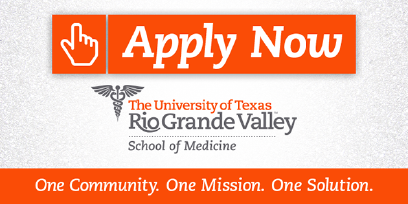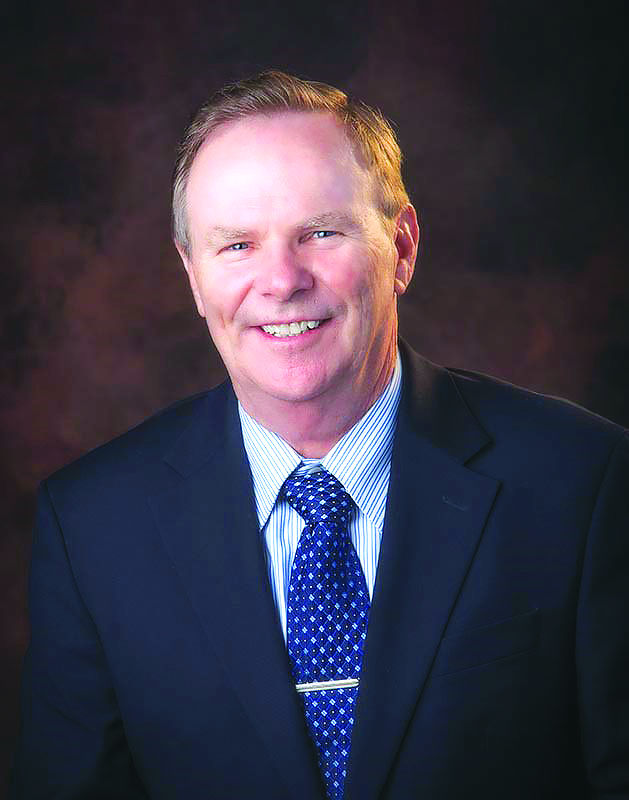McALLEN — After 20 minutes of back-and-forth, city commissioners voted Monday to pay the University of Texas Rio Grande Valley School of Medicine $1 million that will specifically go toward a cancer immunology program based in McAllen.
Commissioner Joaquin “J.J.” Zamora was the lone commissioner to vote against the payment. Commissioner Veronica Whitacre recused herself from the vote. Commissioner John Ingram, who voted against giving money to the school in 2017, voted in favor of funding this program.
This money qualifies as the city’s annual payment to the school, city and university officials confirmed. Ingram, who admitted he was nervous about voting in favor of the payment, questioned how the funds would specifically be used.
The money is for lab equipment, among other research purposes, UTRGV President Guy Bailey explained at Monday’s commission meeting. This will be a cervical cancer research program, School of Medicine Dean John H. Krouse said after the vote.
Hearing specifics from UTRGV leadership gave Ingram some confidence in the vote, he said afterwards.
Cervical cancer is a “disease of high prevalence in the Valley,” Krouse said. The program, which will be housed at the university’s research center in McAllen, hopes to have a leader in place by the fall, Krouse estimated. This is when the research facility is expected to open.
“We cannot stop promoting, we cannot stop investing in economic development projects to keep the flow of income coming,” Commissioner Richard Cortez said, arguing for the importance of not only this program, but the school of medicine in general.
Cortez is almost done with his time on the commission, as he’s running for Hidalgo County judge. There is a runoff special election May 3 to fill his District 1 seat.
Timothy Wilkins, one of the two candidates running for the seat, requested that Cortez not vote and leave it to his successor, whoever that might be. Javier Villalobos is the other candidate in that election.
Cortez, who made the motion, said multiple times during discussion that this funding was important.
Zamora, the only “no” vote of the commissioners, said he was concerned about the timing. He argued an uncertain sales tax future for the rest of the year gives him pause. But he admitted that isn’t directly related to this vote, and that the perception by the public worries him.
Darling said the staff has taken these reservations into consideration. As for timing, with the research hoping to launch later in the year, the sooner the city gives the funds, the quicker Krouse can begin his search for leadership of the program, Darling said.
Krause sees the program as transforming cancer care in the region.
“It’s meant to look at the science behind cervical cancer in women,” Krouse said. “The obvious next step in this is clinical care; enhancing access to clinical care; enhancing access to novel treatments. So really, we want to make this something where the result we discover in the lab can be translated into care, and really focusing on the people in the Valley. Cervical cancer in the Hispanic cohort — it may behave completely differently. We need to know that, and if we know that then we can make the right treatment approaches available.”
This money toward medical research is the first step in McAllen’s evolving plan. Darling and the McAllen Economic Development Corporation board, in cooperation with MEDC President Keith Patridge, have shifted the organization’s mission.
Since its inception, the MEDC has mostly focused on the manufacturing sector. As that area has become established during the past 25 years, while still continuing to grow, Patridge is turning the MEDC’s focus to medical research recruitment to the city. The MEDC will also continue to focus on manufacturing, Patridge said.
“Our hope is to start clinical trials, and clinical trials with drug companies that will be bringing millions of dollars to the area, which will result in improved health, hopefully, of our citizenry,” Patridge said at Monday’s meeting. “Developing new drugs, new medical treatments for ailments or diseases that we face here in the Valley. Ultimately, our end game is getting pharmaceutical companies to start setting up manufacturing here. Where we’ll start to have high wage manufacturing jobs for medical equipment and medical prescription drugs.”






